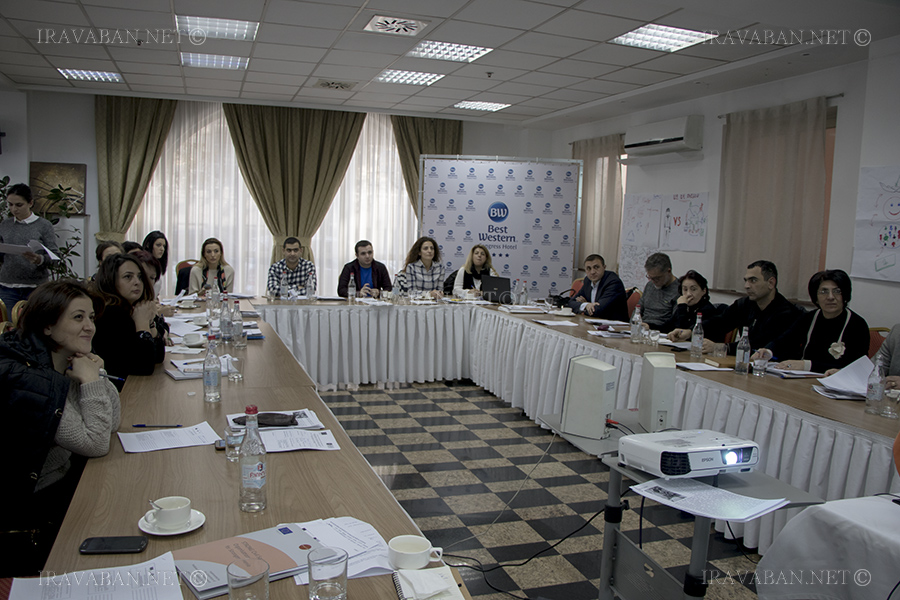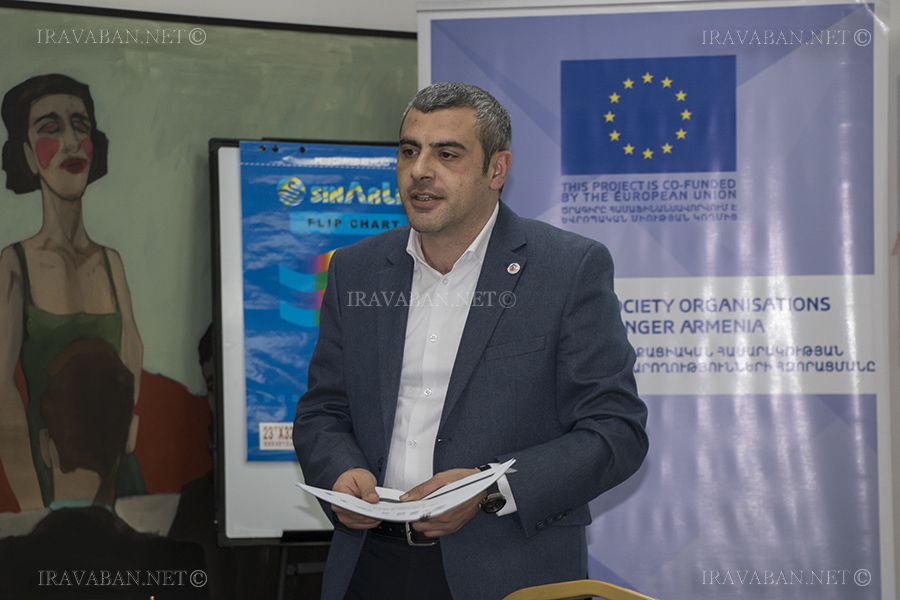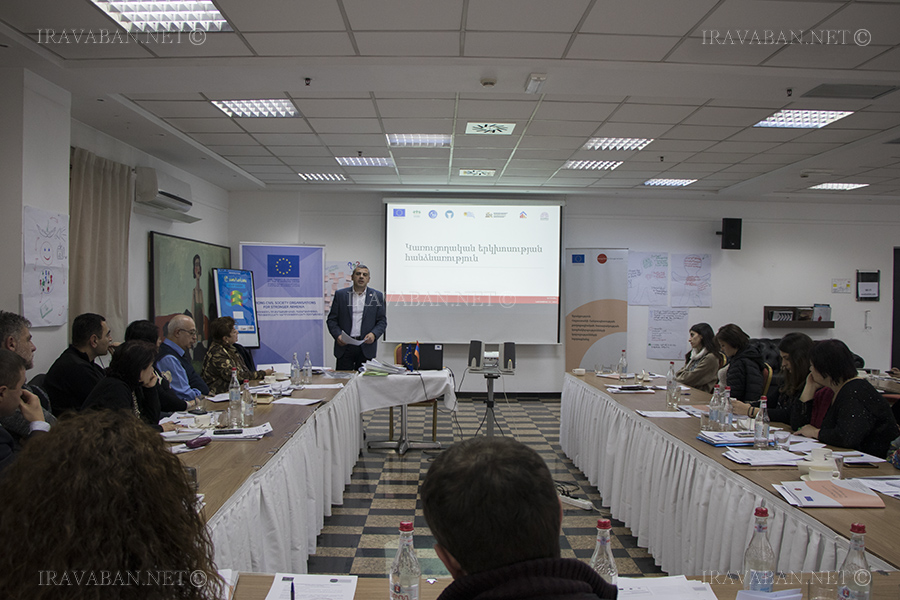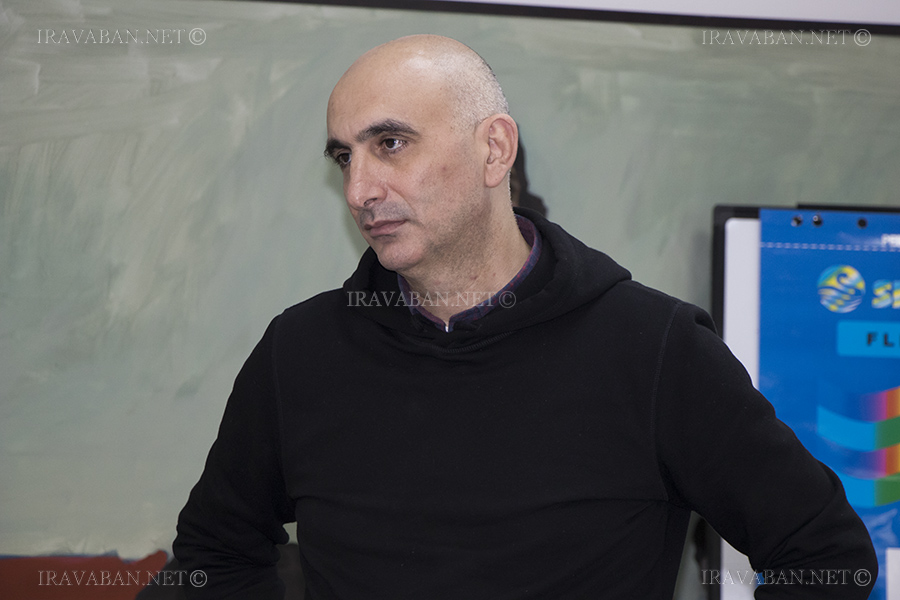On 12 December, representatives of the consortium implementing the EU funded “Commitment to Constructive Dialogue” project provided legal, tax and business counseling on social entrepreneurship to CSO representatives.
The workshop on Social Entrepreneurship was organized within the framework of another EU-funded “STRONG CSOs for a Stronger Armenia” project.
Mr. Karen Zadoyan, the President of the Armenian Lawyers’ Association, “Commitment to Constructive Dialogue” Project Manager presented the legal basis for the organization and implementation of social entrepreneurship to the participants of the training. “The new Law on Non-Governmental Organizations and other related laws have introduced innovations, which directly or indirectly affect or may affect business activities.”
In particular, under the new Law on Non-Governmental Organizations, NGOs have the right to directly engage in business activities in accordance with the objectives set out in their Charter; to dispose their property and the results of their activities, as well as to establish a commercial organization or to become a party to it in the manner prescribed by law for this purpose.
Karen Zadoyan mentioned that NGOs are required to maintain a separate record of entrepreneurial activity including the information contained therein in the statutory reports; at the same time, profits earned by NGOs as a result of business activities are used only for statutory purposes of the organization and cannot be distributed among NGO members.
The “Commitment to Constructive Dialogue” Project Manager drew the attention of NGO representatives participating in the training to the fact that it is forbidden to involve volunteers in the business activities of NGOs.
Further, Karen Zadoyan presented the innovations provided by the new law “On Non-Governmental Organizations”. In particular, the Ministry of Justice is no longer the authorized body overseeing the activities of non-governmental organizations (NGOs); this function is assigned to the State Revenue Committee. Another important innovation is the fact that the Unions of Legal Entities (ULE) actually are abolished, and serious problems have arisen related with the registration/re-registration of the existing operating ULEs.
Volunteer involvement issue is also regulated. Volunteer work contracts must be concluded with them, but they are not employment contracts and volunteer work will not be considered a work experience.
Another provision stipulated in the draft law is problematic as well. According to it the organization may involve volunteers with a 5% ratio of its staff members. That is, the organization must have at least 20 employees to be eligible to involve one volunteer.
The participants of the training showed great interest both related to the issues of the training and on the measures undertaken within the framework of the “Commitment to Constructive Dialogue” project. Karen Zadoyan mentioned in his speech that the project staff members are willing to provide consultation and support to all CSO representatives and provided relevant contact information.
Mr. Hakob Avagyan, Executive Director of SME Cooperation Association which is member of the Consortium implementing the “Commitment to Constructive Dialogue” project, touched upon a nuances and problems of a number of issues related to taxation of the social entrepreneurship and business activities.
He noted that after the amendment of the new law, it is rather difficult to understand which income is considered to be entrepreneurial and whether it is taxable, and which income is not taxed. According to him, there is a preliminary answer to this question that commissions has been created at the Ministry of Finance, to which the organizations can apply, present relevant documents and get advice on whether or not the specific income is subject to taxation.
At the same time, he noted that it is rather difficult to distinguish taxable or non-taxable income from various activities. For example, the NGO works in the same area and is engaged in entrepreneurial activity. How will electricity, gas, and other costs be determined and distinguished whether they are made for entrepreneurial activity or for the NGO’s activities.
Considering these issues, Hakob Avagyan says that the optimal option can still be considered that a separate LLC is established and thereby carry out business activities to avoid tax issues.
After the speech, Hakob Avagyan answered a number of questions of the participants and provided business counseling.
the “Commitment to Constructive Dialogue” Project is implemented with the financial support of the European Union by the “Armenian Lawyers’ Association” NGO in cooperation with its partners; Agora Central Europe o.p.s (an NGO from the Czech Republic), Armenian Center for Democratic Education-CIVITAS, “International Center for Human Development” Public Organization, SME Cooperation Association and Union of Communities of Armenia.

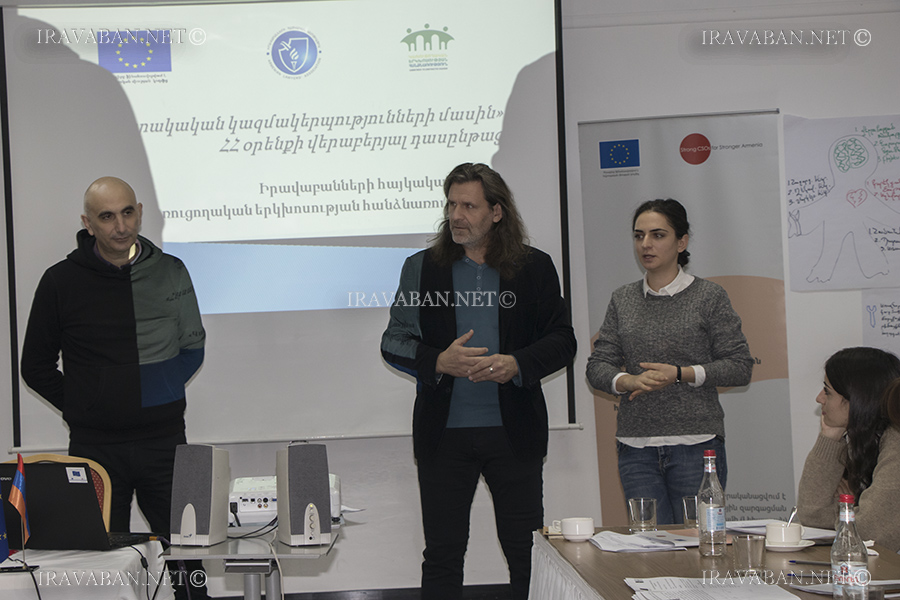
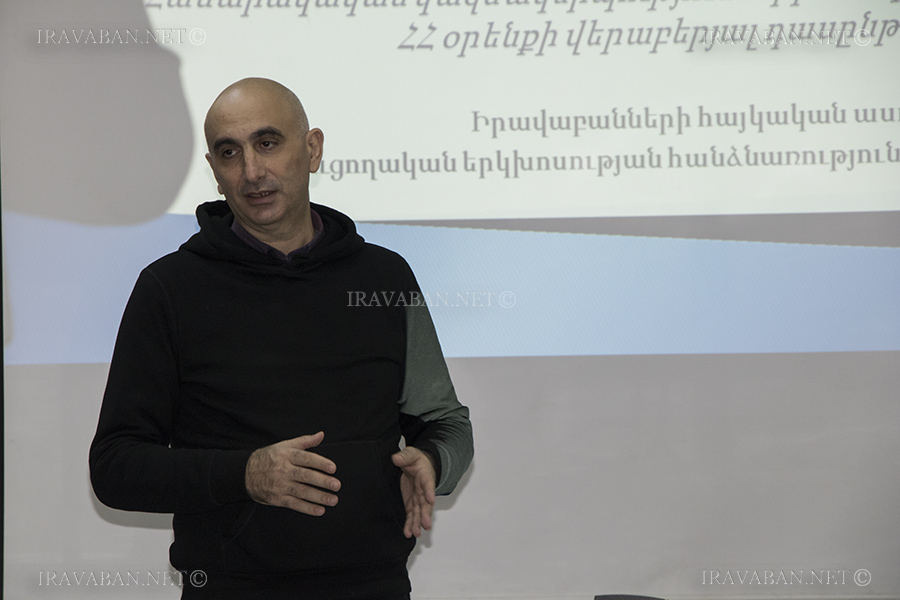
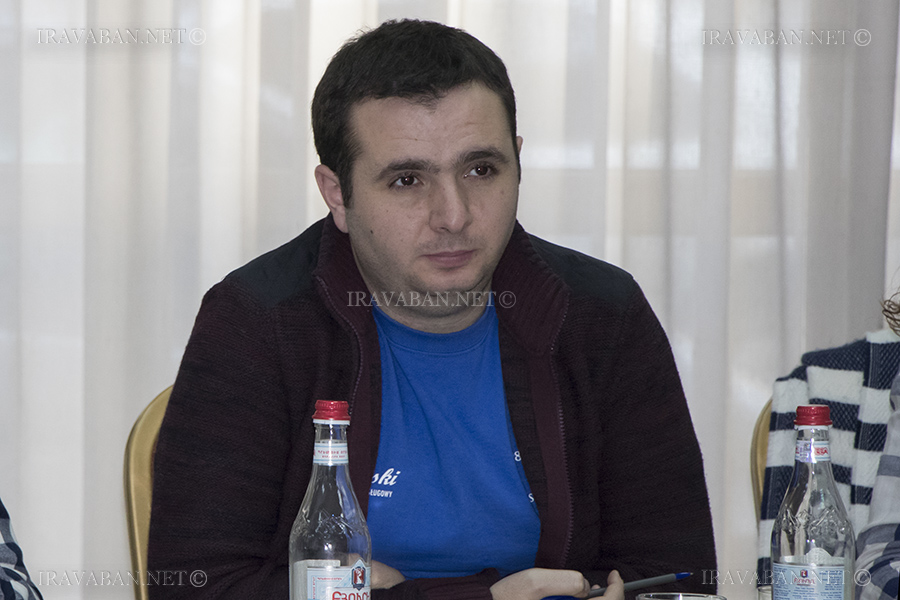
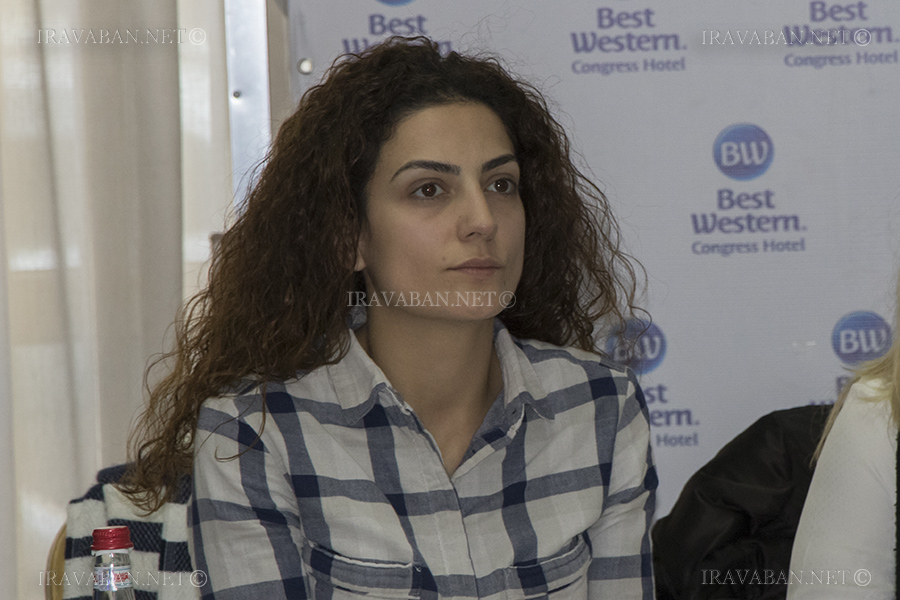
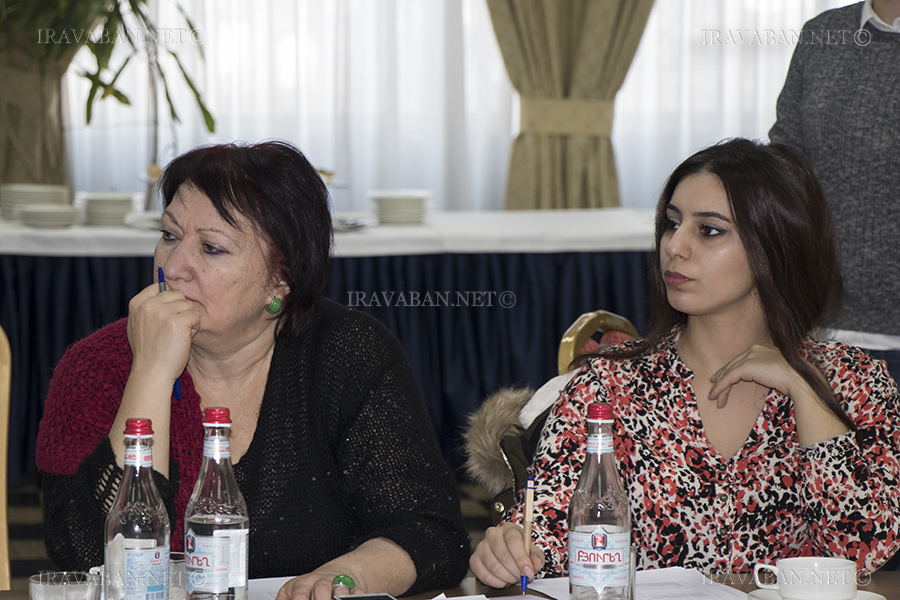
.jpg)
